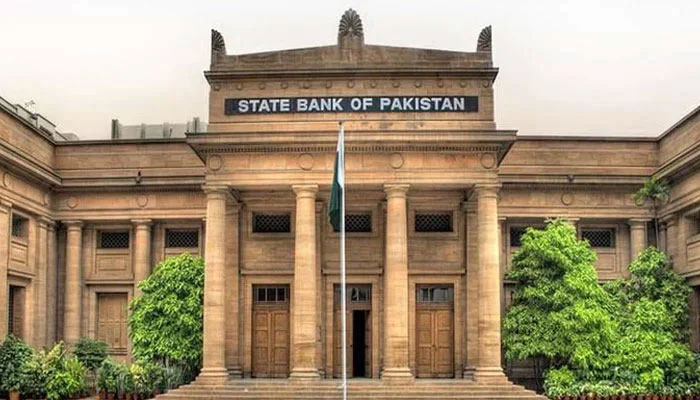SBP pins hopes on Raast getting linked to Arab regional payment system in a year
World Bank, in collaboration with International Monetary Fund, is offering technical assistance to assess Pakistan’s digital currency framework
KARACHI: Pakistan’s central bank is optimistic that within a year, its instant payment system, Raast, will be linked to the Arab regional payment system, Buna, which will help boost remittances, sent home by Pakistanis living abroad through official channels.
The State Bank ofPakistan (SBP) is working with Arab Monetary Fund (AMF) to introduce the cross-border payment system to facilitate overseas Pakistanis across the world, said Saleem Ullah, the deputy governor of the SBP, while talking to media on the sidelines of 5th DigiBAP Summit 2024.
This service called as Buna is likely to be available in next year that will reduce the transaction cost for senders of the remittances from foreign countries, hence, the remittances flows will shift from informal to formal channels at an optimal level, he said.
Buna connects the Arab world with international commercial and central banks to facilitate cross-border payments throughout the Middle East and beyond. Raast’s linkage to Buna would also significantly reduce the cost of cross-border financial transactions, he said.
He said that the SBP is working to introduce digital currency, currently in the evaluation stage. The World Bank, in collaboration with the International Monetary Fund, is offering technical assistance to assess Pakistan’s digital currency framework.
Earlier, speaking as chief guest at the summit, the deputy governor said that ease in access to finance for the SME sector is the priority area for the government and all banks need to create the requisite infrastructure and systems to extending digital financing solutions for supply chains of SMEs. He lamented that currently less than 5 percent commercial funding is extended to the crucial SME sector.
The SBP’s 5-year strategic plan calls for doubling the size of credit to SMEs to Rs1,100 billion and increasing the borrowers 150,000 small businesses. “For this we need to accept SMEs as a profitable business segment,” he said.
Saleem Ullah asked banks to develop their working plans for this end and share those plans with SBP. SME along with Agriculture and IT remain priority sectors and the Pakistan Banks’ Association (PBA) has made task forces on this. These sectors require concrete measures on real commercial lines and not just lip service or subsidies.
He also said that banks need to properly leverage technology to meet targets, reduce bank costs, and increase access. “We have global examples for this including some in Pakistan as well. The SBP has extended a challenge fund to start-ups for SME and DSC financing and good options had emerged,” he said.
He stressed the need to improve on synergies to reduce cash circulation, digital payments, digital banking and the overall digital banking eco-system. Raast with 37 million digital accounts and Rs15 trillion in transactions has been a game changer in digital banking.
Chairman Pakistan Banks’ Association Zafar Masud, said increasing digital adoption is dismantling barriers to financial inclusion in Pakistan, engaging people in the formal financial system, aiding in the drive of economic growth, and posing an opportunity for Digital Supply Chain Finance (or DSCF) to streamline and enhance financial transactions within supply chains and offer substantial benefits to SMEs.
He mentioned that the banking regulator mandated banks to develop and implement DSCF solutions within six months to address the need to increase SMEs’ access to finance and digitise payments. In this regard, partnerships between banks, fintechs, and other technology providers can expedite the rollout of digital SCF offerings, making them accessible to SMEs relatively quickly.
Finance Minister Muhammad Aurangzeb also mandated the PBA to work with SBP on enhancing financial inclusion in agriculture and SMEs, particularly in the area of technology and leveraging existing digital platforms, he added.
Aamir Aftab, Chief Product Officer at JazzCash, said, “Pakistan is home to approximately 3 million small, and medium enterprises (SMEs), and JazzCash aims to digitise its transactions. “The platform processes over 100,000 loans daily, providing a crucial financial tool for MSMEs, which are the backbone of Pakistan’s economy but have historically had limited access to formal financial sources.”
“With policy interventions that incentivise digital payments, we can accelerate the adoption of digital financial services. JazzCash’s extensive network allows it to digitise over Rs100 billion each month, serving a customer base of 44 million,” he added.
-
 King Hospitalized In Spain, Royal Family Confirms
King Hospitalized In Spain, Royal Family Confirms -
 Japan Launches AI Robot Monk To Offer Spiritual Guidance
Japan Launches AI Robot Monk To Offer Spiritual Guidance -
 Japan Plans Missile Deployment Near Taiwan By 2031 Amid Growing Regional Tensions
Japan Plans Missile Deployment Near Taiwan By 2031 Amid Growing Regional Tensions -
 Meghan Markle, Prince Harry Spark Reactions With Latest Announcement
Meghan Markle, Prince Harry Spark Reactions With Latest Announcement -
 Kate Hudson Reflects On Handling Award Season With No Expectations
Kate Hudson Reflects On Handling Award Season With No Expectations -
 6 Celebrities Who Have Been Vocal About Anxiety And 'panic Attacks'
6 Celebrities Who Have Been Vocal About Anxiety And 'panic Attacks' -
 Is This The Future Of Train Travel? Robot Dogs, Drones Are Redefining Public Transit Safety Through China’s New Metro Station Deployment
Is This The Future Of Train Travel? Robot Dogs, Drones Are Redefining Public Transit Safety Through China’s New Metro Station Deployment -
 Sarah Ferguson Seeks Hollywood Backing As Epstein Files Resurface
Sarah Ferguson Seeks Hollywood Backing As Epstein Files Resurface -
 China’s AI Milestone: ByteDance’s Doubao Chatbot Hits 100M Users During Lunar New Year
China’s AI Milestone: ByteDance’s Doubao Chatbot Hits 100M Users During Lunar New Year -
 Think You Know ChatGPT? Here Are 5 AI Levels You’ve Never Seen
Think You Know ChatGPT? Here Are 5 AI Levels You’ve Never Seen -
 Bitcoin Bounces From $62,000 As On-chain Metrics Signal Prolonged Weakness: Here Is Everything To Know
Bitcoin Bounces From $62,000 As On-chain Metrics Signal Prolonged Weakness: Here Is Everything To Know -
 Elon Musk Teases Official Grok CLI For Developers As AI Rivalry With Anthropic Heats Up
Elon Musk Teases Official Grok CLI For Developers As AI Rivalry With Anthropic Heats Up -
 Jennifer Aniston Ready To Walk Down The Aisle Again?
Jennifer Aniston Ready To Walk Down The Aisle Again? -
 Sarah Ferguson’s Plan Now That Andrew Is Thrown Into The Fire: ‘She’s Not Certain She’ll Come Out The Other Side’
Sarah Ferguson’s Plan Now That Andrew Is Thrown Into The Fire: ‘She’s Not Certain She’ll Come Out The Other Side’ -
 ‘The AI Doc’: What AI Leaders Told Daniel Roher Will Keep You Up At Night
‘The AI Doc’: What AI Leaders Told Daniel Roher Will Keep You Up At Night -
 Sarah Ferguson In Hiding As Arrest Fears Grow After Andrew Was Taken Into Custody
Sarah Ferguson In Hiding As Arrest Fears Grow After Andrew Was Taken Into Custody




